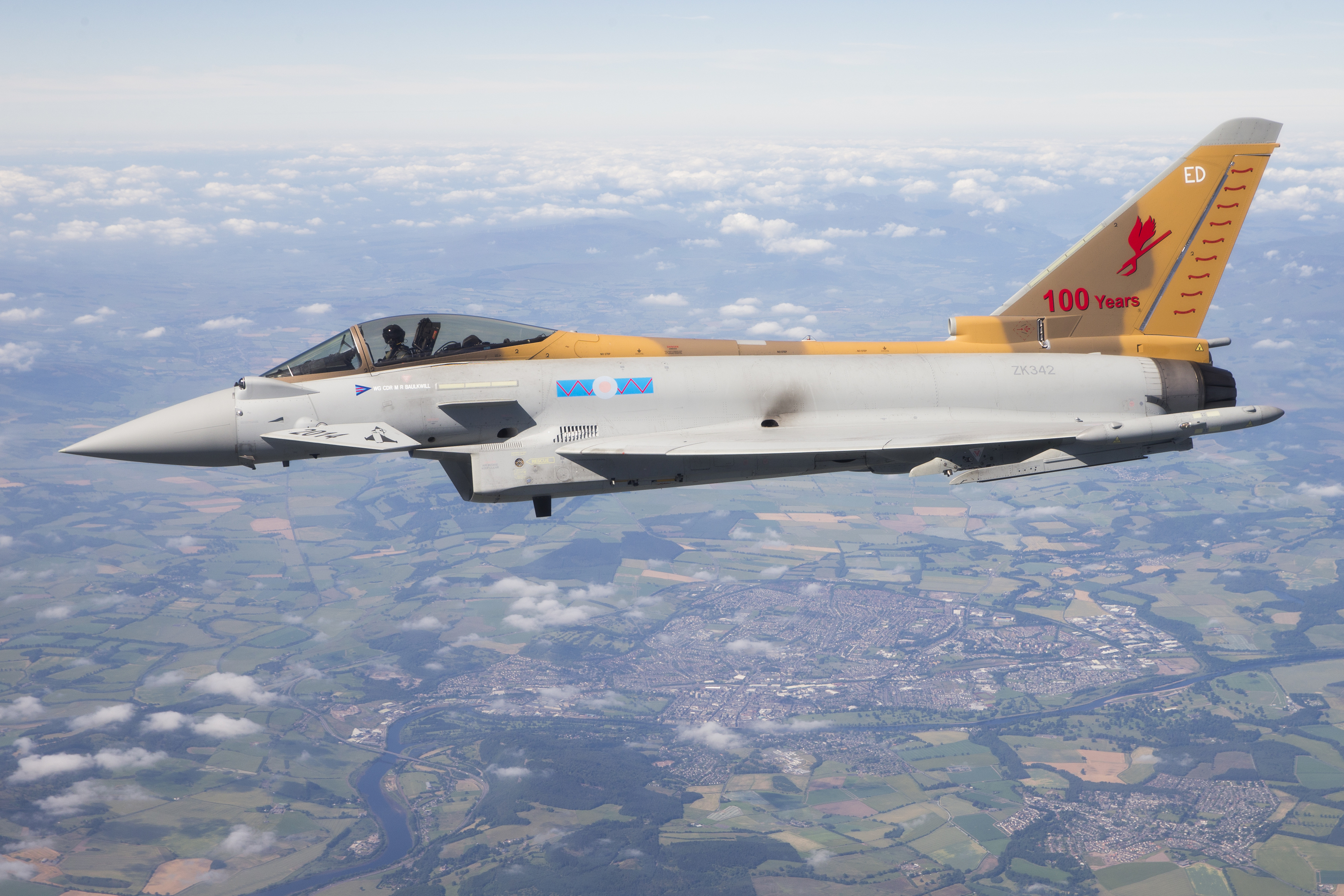RAF Lossiemouth’s Quick Reaction Alert (QRA) fleet has been scrambled in response to more false alarms than genuine threats since being established in Moray.
The Typhoon unit is on standby 24 hours a day to intercept enemy aircraft encroaching on UK airspace, but fears have been raised that pilots are being placed at “unnecessary risk” by airlines entering the nation’s skies without permission.
Figures obtained by the Press and Journal show that, since the squadron relocated to Lossiemouth from Leuchars two years ago, less than half of its deployments have been in response to Russian military aircraft.
The jets were launched 39 times up until July, but only on 17 of those occasions were they called to combat genuine defence threats.
It is understood that a small number of call-outs were in response to civil aircraft requiring assistance – but the majority have been caused by pilots entering UK airspace without permission.
The revelation follows calls for airlines which cause RAF jets to be scrambled unnecessarily to be more strictly penalised.
Moray MP Angus Robertson blasted those responsible for “ill-considered” activity which causes the military unwanted expense.
Mr Robertson said: “The QRA aircrews at Lossiemouth do a vital job of protecting our airspace.
“They respond not just to military threats, but also to civil aircraft that may be suffering problems such as lost communication right through to potential terrorist threats.
“While some of the non-military interceptions will have been for civilian emergencies, in other cases ill-considered activity by aircraft such as unnecessary encroachments on our airspace can result in false alarm call outs for QRA crews.
“That is clearly avoidable, as well as being expensive and placing people at unnecessary risk.”
Across the country, military planes are being scrambled in response to false alarms as often as twice a month.
The Department for Transport (DfT) carried out a consultation on changing the maximum fine level for airlines found to have caused the call-outs earlier this year.
The organisations responsible presently face £5,000 penalties for triggering unnecessary alerts.
But the government body is considering hiking fines to as much as £100,000 to deter pilots from wasting time and resources.
A DfT spokeswoman said: “It is important the authorities have the right tools to do their job effectively.
“That is why we have consulted on strengthening the enforcement options available, and we will respond in due course.”
The Quick Reaction Alert force was established during the Cold War, with a brief to detect and intercept enemy aircraft.
Pilots attached to the deployment remain on high alert at all times, and the aircraft are maintained so they are ready to go into action at a moment’s notice.
The squadrons were relocated from RAF Leuchars to the Lossiemouth base in September 2014, when it was decided that the Fife airbase would no longer operate as a fast-jet station.
The following month, work began on improving the grounds at the Moray airfield to ensure the jets were maintained to the highest standards.
Generally, pilots respond to alerts within 10 minutes – and the aircraft have been scrambled to intercept Russian bombers on a number of occasions since taking up residence in Lossiemouth.
The MoD said the statistics should reassure people that the UK is protected from “airborne threats” and that the resources invested in QRA have been properly employed.
A spokesman said the figures demonstrated the RAF’s ability to respond “efficiently, effectively and appropriately” to potential threats.
Most recently, QRA crews were called to intercept two Russian Blackjack bombers close to UK airspace on Thursday.
False alarms plague RAF Lossie fleet
By
Ben Hendry
